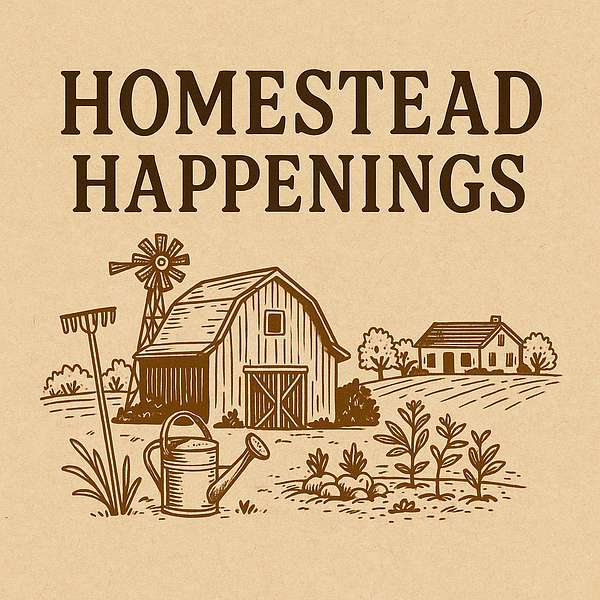Favorite Products for Herbal Recipes

The tools, jars, and staples I always keep stocked for herbal magic at home.
When you’re making salves, teas, tinctures, and all the good-for-you remedies your great-grandma swore by, your herbal pantry matters. Over the years, I’ve tested just about every jar, strainer, oil, and label out there—and while you don’t need fancy gear to make good medicine, having the right tools does make the process smoother, cleaner, and a lot more fun.
So here’s a rundown of my tried-and-true favorites for herbal recipes. Whether you’re just getting into herbalism or you’ve got a cabinet full of jars already, these are the things I reach for every single week.
My Go-To Gear
1. Mason Jars (Half-Pint to Quart Size):
These are the backbone of every herbal kitchen. I use them for infusions, tinctures, oil infusions, dried herb storage—you name it. The wide-mouth ones make straining easier, and you can always find extra lids and rings.
2. Cheesecloth or Fine Mesh Strainer:
Essential for separating herbs from oils or liquid after steeping. A double layer of cheesecloth over a funnel does the trick for most oils and tinctures.
3. Amber Glass Dropper Bottles (2 oz and 4 oz):
Perfect for storing finished tinctures, herbal extracts, and even infused oils. The dark glass helps protect herbal properties from light, and the dropper tops make dosage a breeze.
4. Stainless Steel Funnel Set:
These keep the mess down when pouring oils or tinctures into smaller bottles. I keep one for oils and one for alcohol-based tinctures to avoid any cross-contamination.
5. Digital Kitchen Scale:
For recipes where weight matters (like when working with beeswax or dried roots), a scale saves the guesswork. Look for one that measures in grams and ounces.
Herbal Staples I Always Keep on Hand
1. Organic Olive Oil & Coconut Oil:
These are my go-to bases for salves and infused oils. Olive oil is excellent for skin-soothing blends, and coconut oil adds antimicrobial power and solidifies nicely in balms.
2. Beeswax Pellets:
For turning infused oils into balms and salves. The pellets melt faster than blocks and are easier to measure.
3. Witch Hazel (Alcohol-Free):
Perfect for cooling sprays, facial toners, and bug bite remedies. Get the kind without artificial fragrance or alcohol for gentler skin support.
4. Raw Apple Cider Vinegar (with the Mother):
Used in herbal vinegars (aka oxymels when combined with honey). Also makes a great base for homemade fire cider and digestive tonics.
5. Vodka or Everclear (for tinctures):
You’ll want a high-proof alcohol (80–100 proof for most herbs, higher for resinous or tough roots). Always choose a clean, neutral vodka—no flavored stuff.
6. Raw Local Honey:
Key for syrups, oxymels, and herbal cough remedies. Raw honey also adds antimicrobial benefits and a sweet balancing touch to bitter herbs.
Optional But Handy
1. Labels & a Sharpie or Paint Pen:
You’ll think you’ll remember what’s in that jar… until you don’t. Always label with herb name, date, and whether it’s oil, tincture, vinegar, etc.
2. Mini Whisk or Wooden Stirring Stick:
Helpful for blending salves and stirring honey-based syrups.
3. Coffee Grinder (dedicated to herbs):
This is great for grinding roots, seeds, or tougher dried leaves before steeping. Don’t use the same one you use for coffee—you’ll end up with a weird minty latte.
4. Herb Drying Rack or Screens:
If you’re harvesting your own herbs, you’ll want a well-ventilated setup for drying without mould.
Where I Get Everything
I like to support small herbal shops when I can, but for basics like bottles and oils, I usually shop through:
- Mountain Rose Herbs (for high-quality dried herbs, oils, beeswax, and apothecary tools)
- Star west Botanicals
- Amazon (for jars, funnels, and bulk gear—just be picky about the brands)
- Local health food stores (for raw honey, ACV, and sometimes fresh herbs)
Final Thought
You don’t need to buy everything at once. Start with what you need for the herbal recipe in front of you. Over time, you’ll build a collection that fits your pace and your style. Keep it simple, be intentional, and most of all—enjoy the process. Herbalism isn’t about perfection, it’s about connection. With your plants, your pantry, and the people you’re making remedies for.

Leave a Reply